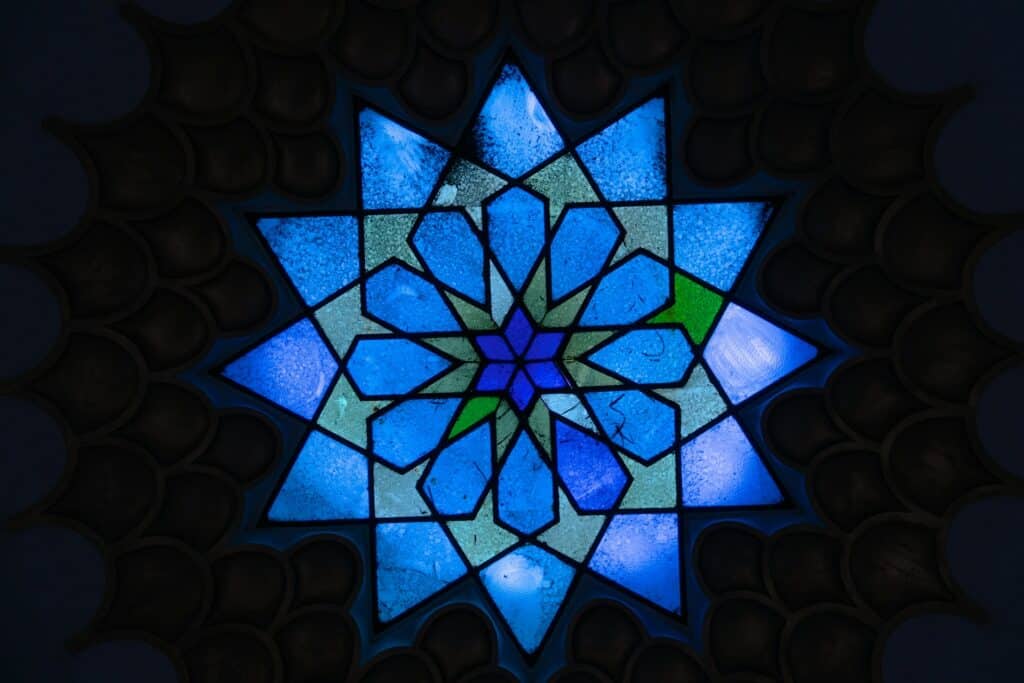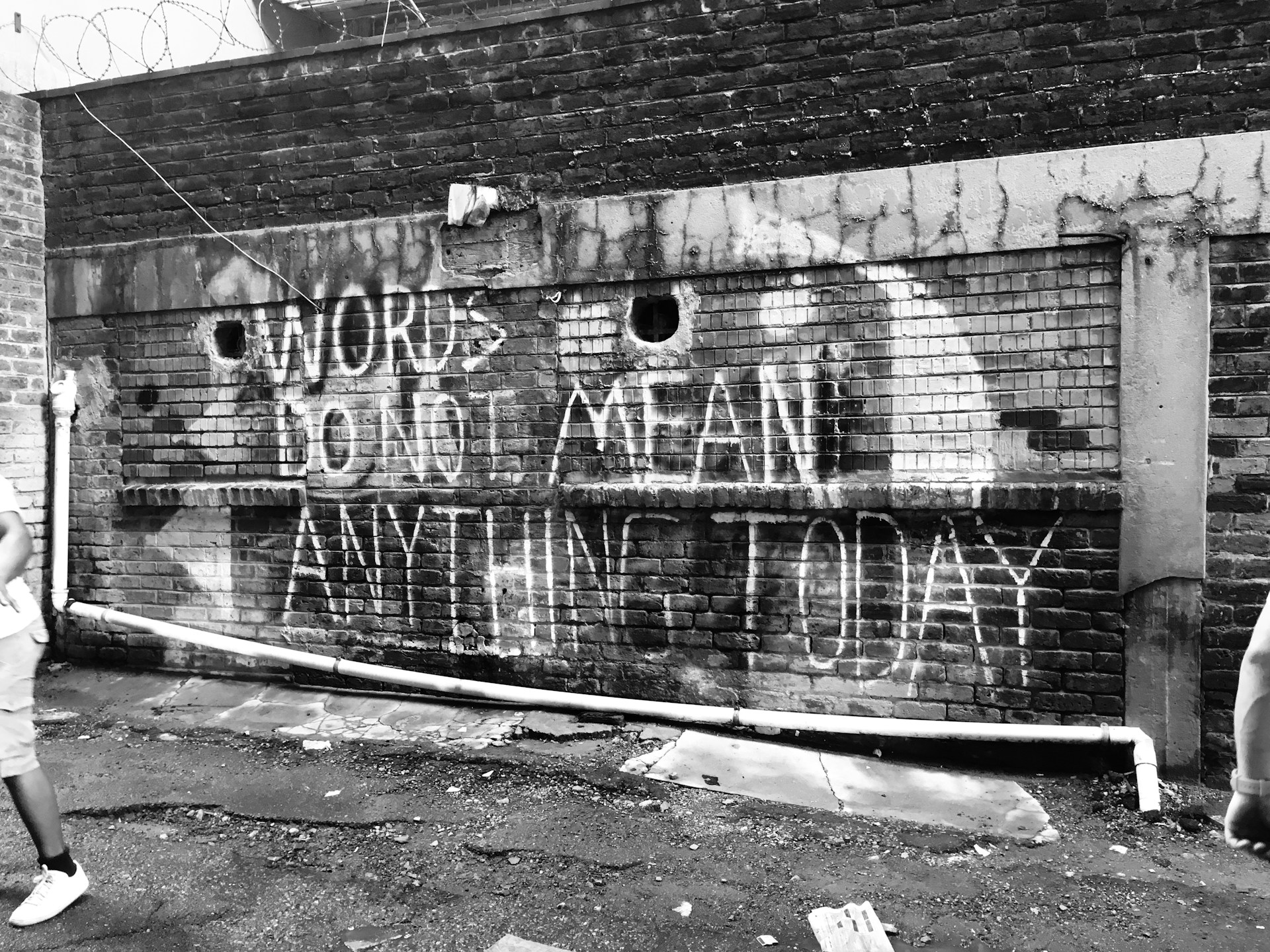Religious communities overplay the idea of truth, undermining faith as a value and eroding institutional credibility in the process.
Let’s clarify what we mean by truth, and then we’ll talk about why many people are way too invested in an idealized and narcissistic version of the concept to the detriment of themselves and others.
Truth, for the purposes of this missive, is an incontestable conclusion drawn from apparent and undeniable facts arrived at through logic, deduction, and sensory experience. This is also described as “genuine knowledge” by modern materialists, particularly of the neopositivist school, though there are no shortage of religious zealots who subscribe to this silliness. And if you’re even partially paying attention, you’ll already see issues because, if the modern era has taught us anything, everything is contestable. Nothing is apparent and denial is a state of being for a shocking number of us.
At Dust and Tribe, we wear our identity as Islamically-informed outdoor adventure facilitators proudly. We accept certain beliefs as truth, but this is a wildly different proposition than the definition of truth mentioned previously which is increasingly associated with religious communities.
We take this to be abundantly problematic.
Our position ultimately turns on a single point, so let’s start there.
Objectivity is Impossible

We are finite creatures with laughably short lifespans, significant sensory limitations, and a consciousness fraught with trauma and prejudice. We are not capable of the kind of cognitive neutrality that would allow for objectivity. In fact, those individuals dispossessed of their passions to the point of approaching objectivity impress us as psychopaths. They do not function well in community which is held together ultimately through bias and belief.
If we are individually flawed, perhaps working in the collective will bring us closer to this ideal of objectivity? This is the basis of peer-review in the scientific community where the testing methods and results of few are confirmed by many. This is supposed to be a more rigorous standard, but it is not. Biases are often more consolidated and rigid within the cultures that evolve around specialized fields of study. In addition, we have come to see just how much money, politics, and ambition will color the purported truth-seeking aim of rational, scientific inquiry.
If objectivity is lost to both the individual and the group, we might then turn to technology. A surprising number of men and women hold this assumption, seemingly unaware of the human bias programmed into the technology and willfully blind to the idea that so-called neural networks are conditioned through our aggregate, very human inputs. We are then conditioned by the responding technological outputs and our prejudices are only intensified through this circular amplification of bias. The current fragmentation of society through radical polarization is entirely mediated by a technology that has proven anything but neutral.
Mathematics is a discipline that seems to offer a level of objectivity well beyond the criticisms mentioned so far. It certainly has that veneer, but at the end of the day mathematics is a tool. It is a symbolic representation of our experience rendered into numbers. Just as we are communicating these ideas to our readers and listeners through the symbolism of language, such representations may meet most practical tests of neutrality. However, in the employ of these tools both language and mathematics are subject to all of the pitfalls previously discussed.
Rational disciplines including science and mathematics recognize the futility of assuming absolute objectivity and frame the more convincing results of their work as theories, rules, and laws. These are all statements of correlation, some specific and some broad, but all with the important caveat that nothing is proposed to be immutable. Good science does not make claims to absolute and inviolable truth, though it aspires to draw nearer to this impossible goal through a refining of conclusions over time.
Belief is Better

We hope that what is apparent is that even in the rational disciplines we have nothing approaching an incontestable conclusion. The highest levels of certainty are best guesses based on available evidence as interpreted through our contemporary cultural milieu. And as we develop ever more sensitive instruments, we gather new information potentially confirming or upending our ideas and this happens all the time.
Regardless of where one might stand on the question of religion, belief is where we all land. And since all roads lead to belief, it is our position that what we ultimately choose to believe is the clearest measure of how we understand the value of belief.
The work of Dust and Tribe is Islamically informed. We center belief. We understand belief to be the wellspring of our mortal magnificence. And we have this understanding because the believer acts without guarantees, without assurances, with nothing but the reckless conviction in stories tuned to her yearning.
Those who will not admit to the fragility of their theoretical postulates, those who ridicule the believer while simultaneously casting their lot with the positivist clerics upholding the flimsy conclusions of a fatally flawed scientific method- these are the cowards of our time.
These are the cowards of every time.
We say they are cowards because they refuse to acknowledge their own investment in story. They have a canon. They have their prophets and their scandals. They are no different from anyone else with a formal or informal belief system.
And it is only fear that keeps them from admitting this.
Religious Insecurity

Sadly, we find ourselves in a time when believers are yielding their strength in a craven urge to assimilate with an ascendant secular culture. The weak-minded among us view popularity as a proxy for strength and veracity when in reality the mainstream always represents the least interesting and most passive currents of any given culture.
Among Muslims we see purported scholars offering to give us “evidence-based” proofs of God’s existence. Only this past week I received an invitation to attend a weeks-long seminar on how we can use our critical thinking to ascertain the “truth” of Islam.
But even a modicum of critical thinking is how we arrive at an awareness that objectivity is beyond us. With no capacity for objectivity, we cannot ascertain “truth” beyond a contingent, self-serving definition. These charlatans can only offer validation, which is what most of us want in any case.
Truth in the Islamic tradition is the purview of God alone:
You surely cannot guide whoever you like, but it is God Who guides whoever He wills, and He knows best.
Q 28:56
And while today’s shame-faced teachers profess their enthusiasm for bits of sacred text that have been scientifically verified, giving them brittle assurances that the brave believer would never require, it was our beloved Prophet Muhammad, may the peace and blessings of God be upon him, who reportedly said:
Blessed are those who had faith in me and saw me, and blessed seven times are those who had faith in me and never saw me.
Musnad Aḥmad 12578
We prove ourselves through mystery. Where our wits and bodies fail us, there remains our faith.
There is no coming back from adversity except through belief. We will not elect a marital partner except through belief. No job is willfully undertaken unless we believe it to be the right thing for us at the right time. Every single transformative leap we take as human beings requires our certainty in the absolute power of belief.
Dismiss immediately those who proposition you with proofs and evidence and the promise of an incontestable truth.
We do not purport to share truth here. We offer only patterns and correlations for your consideration.
And, of course, the invitation to proclaim yourself a believer.
Leave a comment below for posterity or join us in the D&T Chautaqua Discord to discuss this post with other adventurous spirits from around the world.

Subhanallah, this was really well said. May Allah reward you!